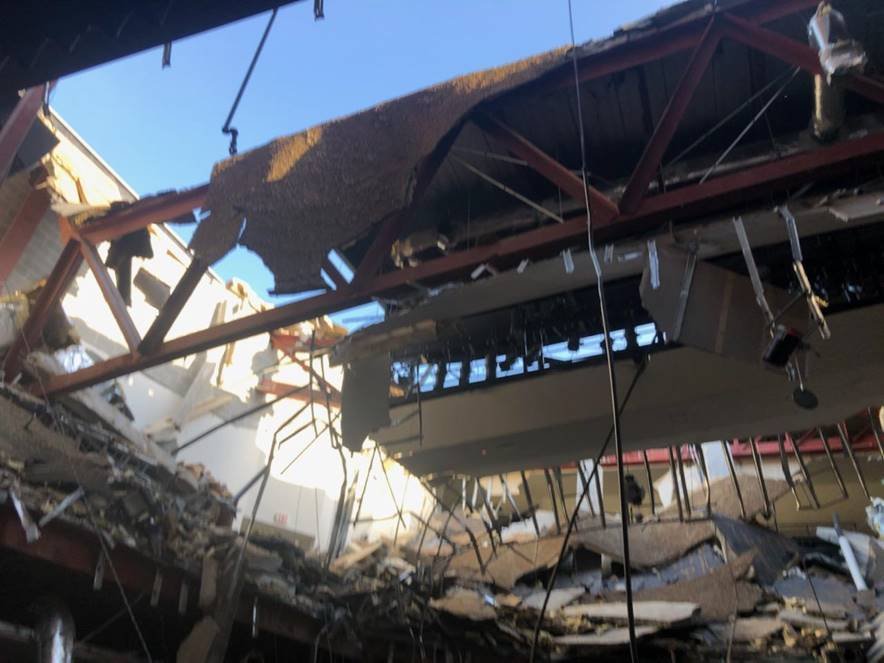Officials at Thomas Nelson Community College in Hampton, VA have a problem on their hands. The roof of Templin Hall, an academic building that houses the college’s 470-seat auditorium, is now on the ground. No one was hurt in the collapse because the pandemic closed the campus in March 2020.
Administrators arrived on campus on Tuesday to begin assessing the collapse. The college administrators could provide no obvious reason for the mishap. Templin Hall opened in 2002, and no severe weather that could have affected the roof occurred recently. The failed portion of the roof held no HVAC systems or other attachments. Utility crews shut off the building’s gas, water and electric services to prevent additional damage.
I have no idea why the roof of a building that is less than 20 years old collapsed. Shoddy construction? (The building opened during the 2001-02 recession.) Bad maintenance? (Honestly, I can’t imagine a community college not doing proper maintenance.) Bad design? Previous damage, known or unknown?
More to the point, how many people would have been in that building, but for the pandemic?
Community college maintenance is a shared liability
This is why cutting the maintenance budget of a community college (WCC) with a $110M budget down to $300,000 borders on criminal negligence. Every single administrator – from the person who set the budget at $300,000 to the person who agreed to work with a budget that small for a campus as large as WCC, to the Executive who proposed the budget to the Board members who approved it take responsibility for whatever might happen when public buildings are not properly maintained.
Campus buildings cannot sit unused for a year or more at a time without consequences. Disuse is dangerous, and it negatively impacts every major system in a commercial building. Pipes and drains can’t have standing water in them for weeks or months at a time. Commercial roofs and HVAC systems can’t go years without inspections and maintenance.
We all have to deal with COVID-19, but this is not the time to cut the maintenance budget to nothing. If anything, prolonged disuse of the facilities creates a greater need for vigilance and maintenance. It is part of protecting the investment (willing or unwilling) that the taxpayers have made in the campus. It is incumbent upon the Trustees to start making reasonable demands of the Administration regarding the maintenance and upkeep of the facilities.
Photo Credit: Image courtesy of Thomas Nelson Community College






















